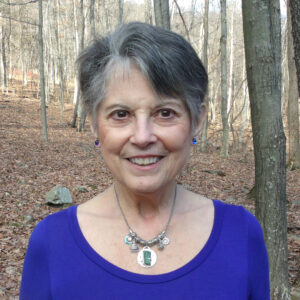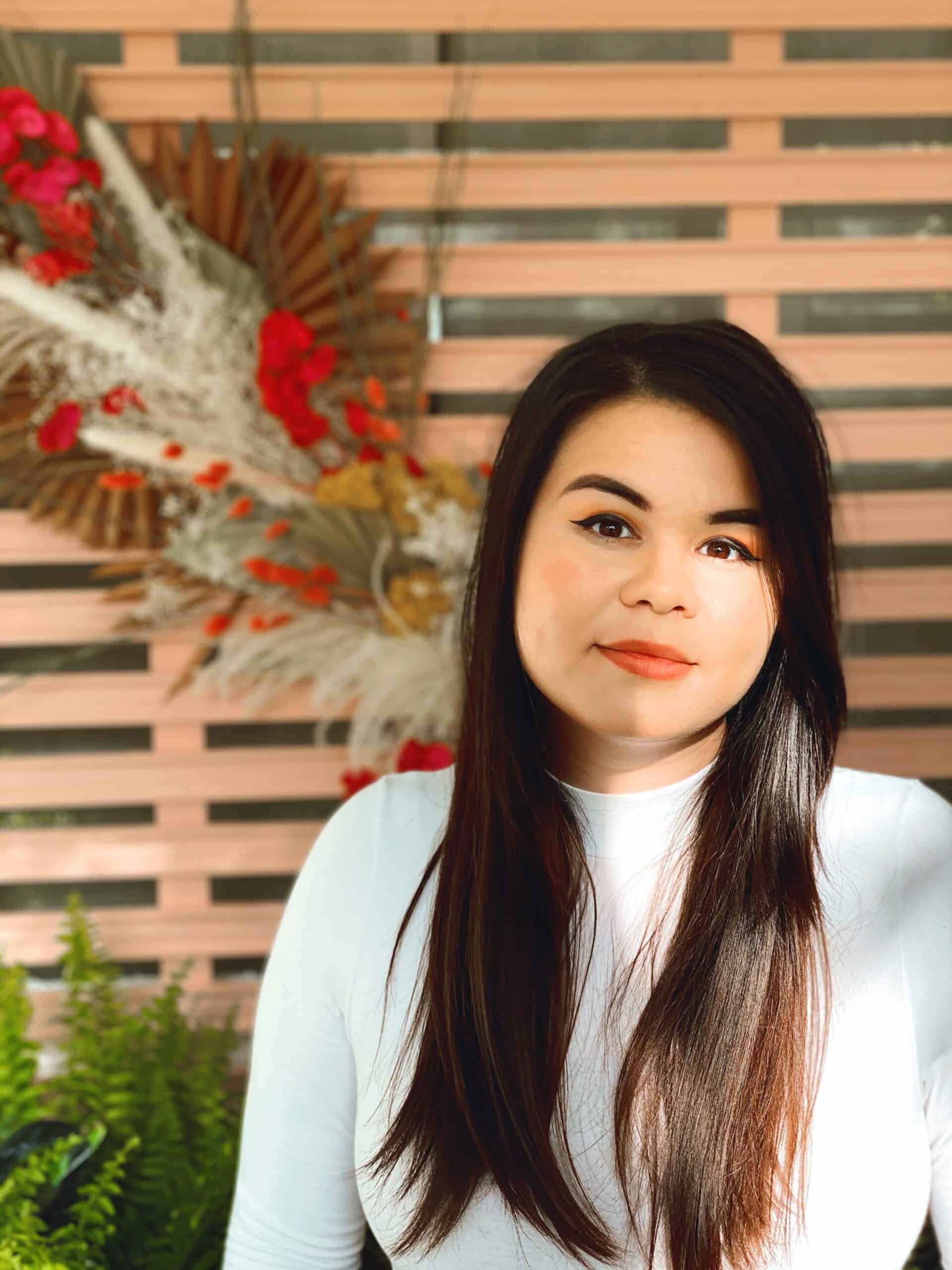Erin McCluskey is a remarkable individual who has seamlessly blended her passion for mental health advocacy with her love for the creative arts. Her personal journey with anxiety, depression, and depersonalization disorder has not only shaped her career but also fueled her determination to raise awareness through storytelling. Erin’s debut documentary, “Absent of Me,” serves as a powerful testament to her resilience and creativity, offering a deeply empathetic exploration of depersonalization disorder. Join us as Erin shares her inspiring journey, the challenges she faced, and the lessons she learned while bringing this important project to life.
What initially sparked your interest in combining your passion for mental health advocacy with your love for the creative arts?
I started struggling with anxiety and depression at a young age. Although I continue to navigate these feelings in my everyday life, it was when I found support through mental health counseling that I slowly started to feel the weight lifting. After that, I knew I wanted to work in the mental health field in some capacity.
Simultaneously, I’ve always had a deep love for the creative arts. I double majored in psychology and theater at Tulane University in New Orleans, and spent five years working as a crisis intervention specialist on numerous regional and national mental health crisis hotlines, while also pursuing a professional career as an actor in the film and television industry. I felt that one of the most effective and fulfilling ways I could combine both interests was by raising mental health awareness through the power of film. When we see our lived experiences reflected with empathy and dignity on screen, it lets us see that we’re not alone.
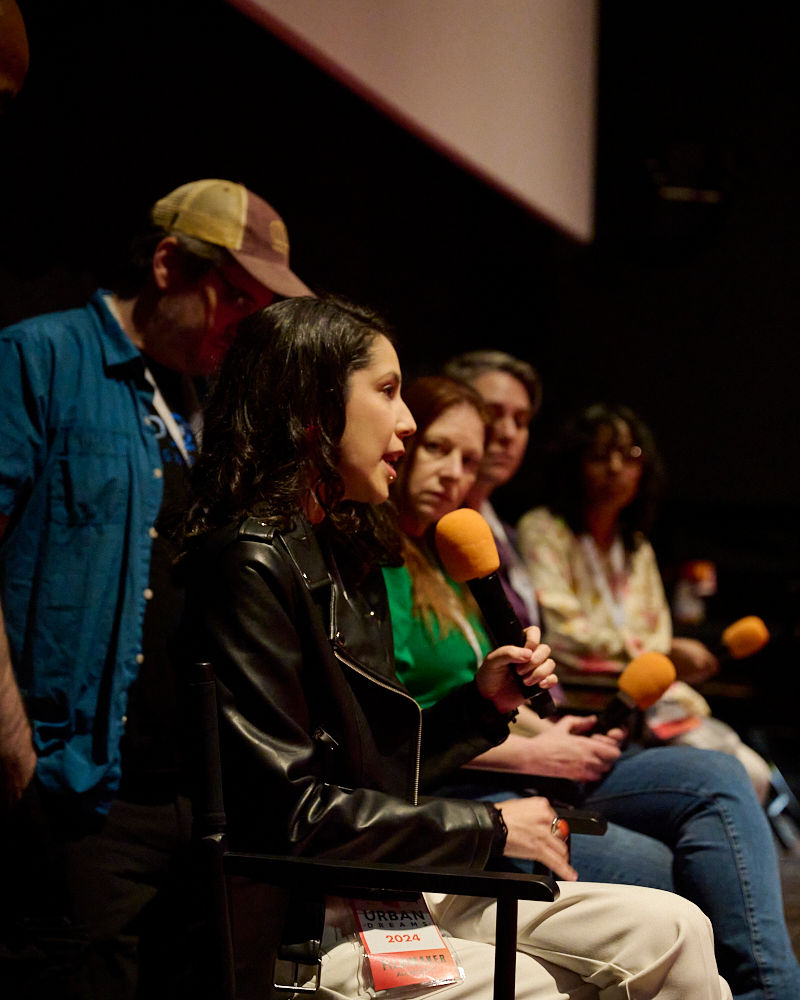
Can you share a bit about your personal journey with depersonalization disorder and how it has influenced your creative endeavors?
In addition to struggling with anxiety and depression, I began to experience chronic feelings of dissociation as I entered my teen years. It was as if the world around me had lost all its color and I felt completely outside of my body. I started researching these feelings online and that’s when I came across the term “depersonalization disorder.” At the time, I could only find maybe two books on the subject, one of which was called Feeling Unreal: Depersonalization Disorder and the Loss of the Self authored by medical writer Jeffrey Abugel and psychiatrist and researcher Dr. Daphne Simeon. When I read the firsthand accounts of patients who were living with the disorder, I knew right away this was what I had been dealing with for so many years. While it’s common for everyone to dissociate from time to time, no mental health professional had ever mentioned the disorder to me before.
As actors, we’re often waiting for the phone to ring, hoping someone will recognize our talent and choose us for the job out of a pool of hundreds — sometimes thousands — of performers. To have more creative control over my career and tell the kinds of stories I wanted to tell, I decided to create my own narrative short film centered around a character living with depersonalization disorder. Very quickly I realized this would be challenging without some kind of educational component to the film, as depersonalization is a largely unknown and under-researched condition. I decided these goals could be better achieved in a short documentary format where I could include more stories beyond just my own.
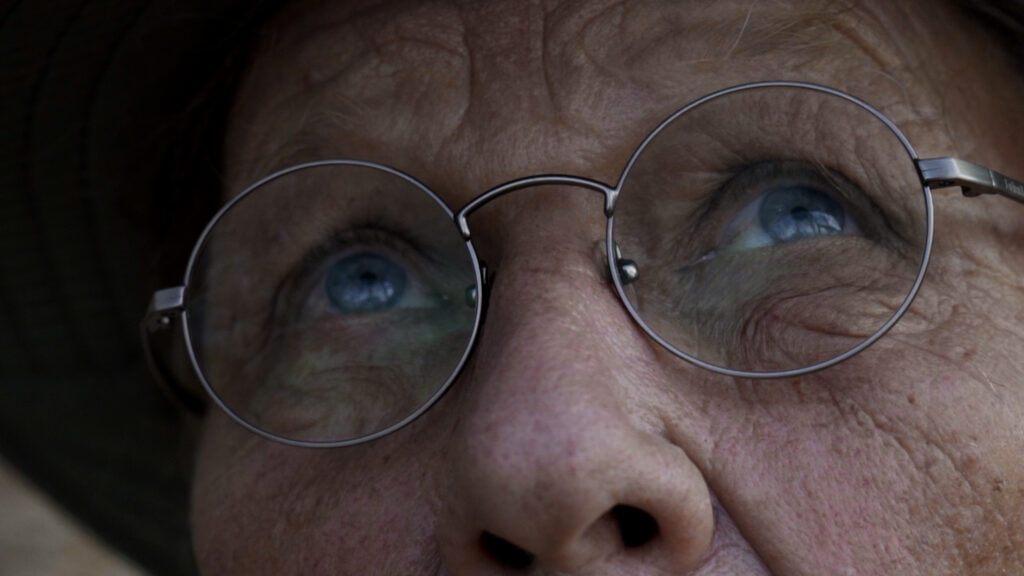
What were some of the biggest challenges you faced while creating “Absent of Me,” both personally and professionally?
I faced no shortage of challenges in the process of making “Absent of Me.” As a first-time filmmaker, the whole experience was a massive learning curve, and imposter syndrome repeatedly surfaced along the way. Without any prior experience, I had no choice but to rely on my instincts. Thankfully, I had the support of my friend and director of photography, Brandon Bordelon, who has a background in videography and short filmmaking and was able to guide me along the way.
Like many creatives over the last several years, we also faced logistical challenges during the COVID-19 pandemic. Many of our interviewees were located out of state or outside of the country. Being unable to film them in person meant that we had to find creative ways to communicate their stories on screen through original music, voiceover, and actor portrayals. As a passion project, working around people’s schedules also proved challenging. “Absent of Me” was also a completely self-funded project, so I had to find creative solutions for navigating budget constraints. All of these challenges combined is ultimately why it took five years to complete the project, but it was well worth the wait.
How did you go about finding and connecting with the individuals featured in your documentary, and what was that experience like?
I initially underestimated how difficult it would be to find people willing to participate in the documentary. It wasn’t that they were hesitant, but so few people knew what the disorder was. I put the message out on social media that I was looking for individuals willing to share their story for the project, posted flyers in different places around the city of New Orleans, and reached out to online forums. Most of the responses I received were along the lines of, “What is this? I’ve never heard of this.” I had to be patient, and eventually, I found nine people from five different U.S. states and three countries (myself included) who were open and willing to dive deep into their lived experiences. Each person then received a packet of interview questions I had developed, and I encouraged people to write as much or as little as they were comfortable. To my surprise, many of them submitted pages-long responses.
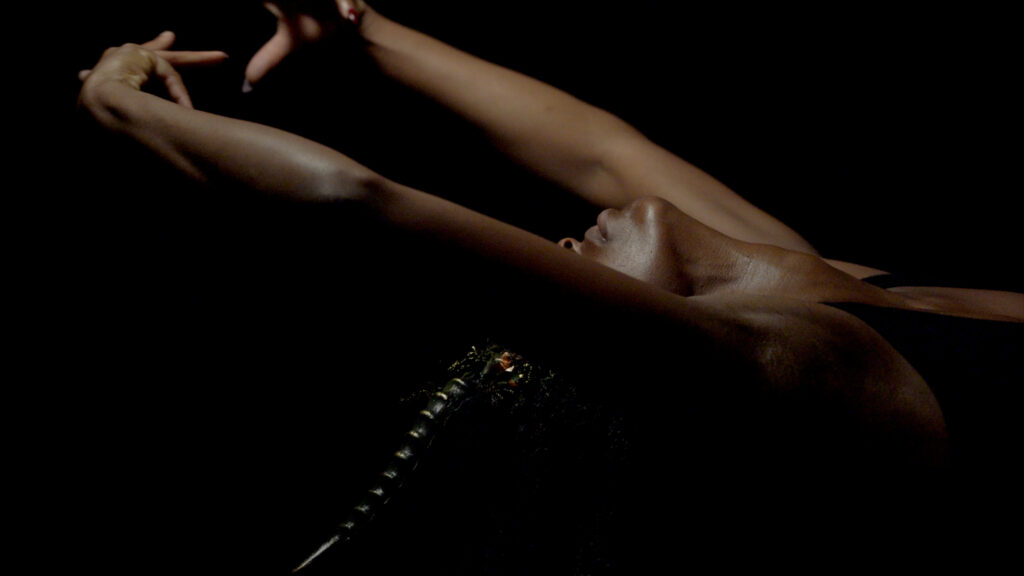
In what ways do you hope “Absent of Me” will impact viewers’ understanding of depersonalization disorder?
My hope is that the film will allow people experiencing depersonalization to put a name to what they’ve been feeling. For me, there was tremendous relief in being able to have language around these feelings because I could finally let go of the false idea that there was something inherently wrong with me. I also hope that “Absent of Me” will give friends and family members a more holistic understanding of the disorder in order to best support a loved one living with depersonalization or derealization.
What advice would you give to other women who are navigating similar paths of pursuing dual careers or blending their passions in creative ways?
A mentor once told me that “creativity has its seasons.” I’ve held onto this message as someone who often falls into the trap of equating their productivity with their self-worth. I can’t do it all, and when I’m giving my full attention to one passion, I’m naturally neglecting the other to some degree. I would tell other women who are walking this multi-passionate path that this is okay. It’s not a sign of failure.
As a multi-hyphenate, it’s so easy to get excited about a million different ideas all at once. To prevent burnout, I’ll stagger my projects in stages. Once I’ve reached the end phases of one project, that’s when I allow myself to start in on a second one. For me, keeping creative projects in different stages helps boost my odds of actually completing them.
Were there any moments during the filmmaking process that particularly stood out to you or had a significant impact on your perspective?
Several moments stood out to me during the filmmaking process that further expanded my view of depersonalization disorder. First were the profound similarities that came up during the interviews. Although none of the participants personally knew one another, many of them cited similar circumstances that had prompted their depersonalization. For example, two participants cited cannabis use as what they believed to be the cause. Another individual mentioned an ocular migraine, which struck me as similar to the temporal lobe seizures another interviewee had referenced. It felt like the pieces of a puzzle were slowly coming together right in front of our eyes.
At the same time, I was also surprised by how different everyone’s experience of depersonalization was. While many people voiced a lack of physical and emotional feeling, another person said the pain of their depersonalization stemmed from being able to feel too much. The third moment that stood out to me was the day we interviewed Jeffrey Abugel, the co-author of Feeling Unreal, whose book had personally helped me so many years ago. I never would have imagined that one day he would agree to take a chance on a first-time filmmaker and share his expertise for this educational passion project of mine. It was truly a special day.
How do you balance the emotional weight of exploring a deeply personal topic like depersonalization disorder while also maintaining your own well-being?
As much as I’ve discovered a love for documentary filmmaking, it’s not the only genre of interest to me. While the topic of mental health is also deeply personal to me, it’s not the only subject matter I’m looking to explore. I’m feeling very ready and immensely excited to now try my hand at narrative filmmaking, specifically within the world of comedy or horror — two underrated genres that are my personal favorites. Being able to make something a little more lighthearted and playful helps me maintain my emotional well-being for when I feel ready to return to stories centered around mental health.
What has been the most rewarding aspect of completing this project, and what future goals do you have for “Absent of Me”?
The most rewarding aspect of this whole experience was attending the film’s world premiere at the Urban Dreams Mental Health Film Festival (UDMHFF), where it screened at the Regal Theater in Union Square in the heart of New York City. Truthfully, I was a nervous wreck. I never feel like the work is done, and sometimes all I can see is what I would have done differently or how I could have improved this or that. At the end of the screening, however, I was overwhelmed by the number of audience members and fellow filmmakers who approached me saying how the film had resonated with them and that they, too, could relate to the condition. The festival co-founders Geoffrey Guerrero and Dr. Grant H. Brenner fostered such a supportive community throughout the entire festival weekend that it allowed me to let go of self-doubt and fully celebrate the film’s impact. My hope is that the stories of those featured in the film will continue to reach audiences through additional film festival screenings.
Can you share any insights or lessons you’ve learned about storytelling and advocacy through your experience with this documentary?
For me, the most important lesson that was solidified throughout this experience was the importance of empathy and dignity in documentary filmmaking. These are people’s real-life stories we’re sharing and they deserve to be told in an empathetic and dignified manner that truthfully reflects their lived experiences.
What support systems or resources have been crucial to you throughout your journey, and how do you prioritize self-care in your busy schedule?
Some days it feels nearly impossible to balance work, classes, creative projects, family and friends — not to mention laundry, grocery shopping, and everyday life stuff. I’m immensely grateful to have the emotional support of my parents and boyfriend, who have always believed in me since day one. I know this is not the case for everyone, and I don’t take the advantage of having a support system for granted. When it comes to self-care, I do my best to prioritize sleep, journaling, and daily breathwork or meditation to help regulate my nervous system.
Having practical systems in place to manage my schedule has also been essential. Throughout the year, I have found it helpful to tackle my goals in quarters — a method I picked up from a fellow actor. For the first three months of the year, fostering my mental health might be my core focus, and if so, I’ll only take on smaller projects that support this goal. For the next quarter, I might pivot my focus to writing a short film script or tending to my physical health. By the end of the year, I’ll have (hopefully) made gains in each of these different areas of my life, as opposed to trying to balance it all at once and only moving the needle an inch or two in each direction. This also becomes a quick recipe for burnout and I have to constantly remind myself that rest is not earned, it is necessary. I say this because it’s what I needed to hear today, too.
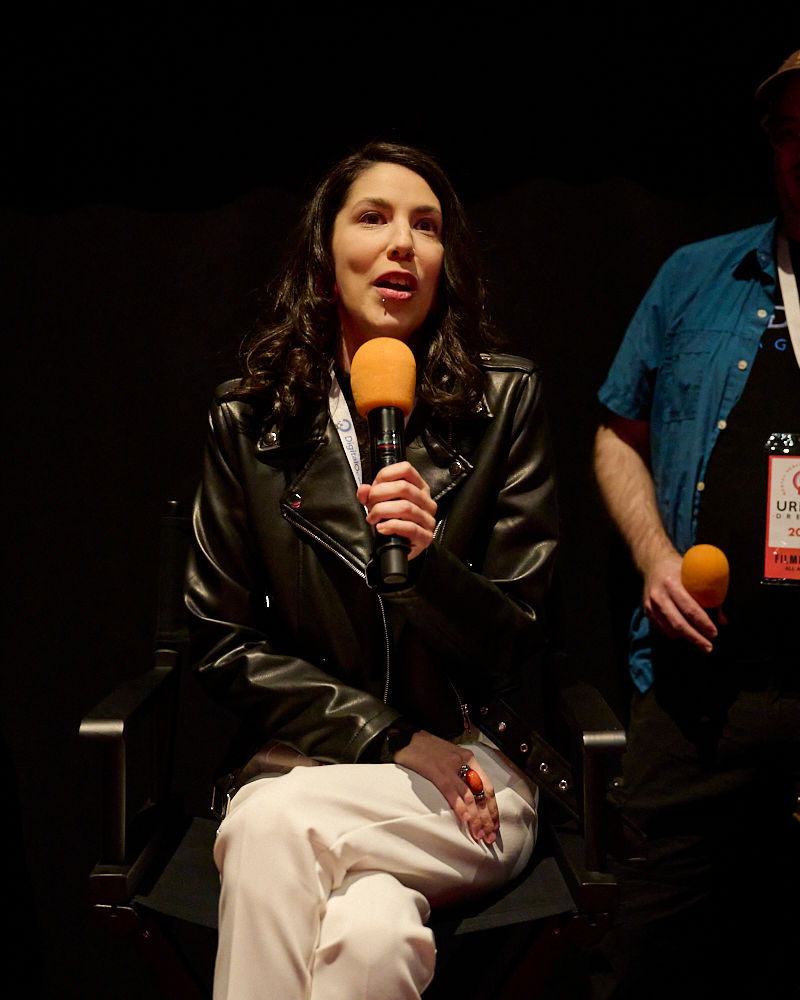
What are some misconceptions or stigmas you hope to challenge through your work on “Absent of Me”?
As one of the participants points out in the film, their symptoms of depersonalization were largely scooped together under a diagnosis of anxiety or depression. Mental health is multifaceted, and depersonalization disorder is its own unique experience. I want to challenge the idea that it all falls under one broad umbrella term.
Could you describe a moment or realization that reaffirmed your dedication to raising awareness about depersonalization disorder through filmmaking?
When it’s only been your eyes on a project for so long, receiving outside feedback can feel daunting. You begin to question whether what you’ve created is truly any good. When I started hearing back from cast, crew, and interviewees about how pleased they were with the film, it felt like I had been holding my breath for the last five and could finally exhale. While your art won’t always be for everybody (nor should it be), knowing that it was of value to those involved is what mattered to me most. It was in those moments I felt reassured that I have a place in the world of filmmaking and that I am nowhere near done telling these stories.
Lastly, what message or takeaway do you hope audiences will carry with them after watching “Absent of Me”?
My hope is that “Absent of Me” will spark people’s interest in learning more about the disorder. One way they can do so is by visiting depersonalization.info which will take them to the website for Jeffrey Abugel’s nonprofit organization The Initiative for Depersonalization Studies (IDS). The organization provides virtual support groups and works to raise awareness of depersonalization disorder in the media. Above all else, my hope is that people experiencing depersonalization will take comfort in knowing they are not alone and that their story matters.



